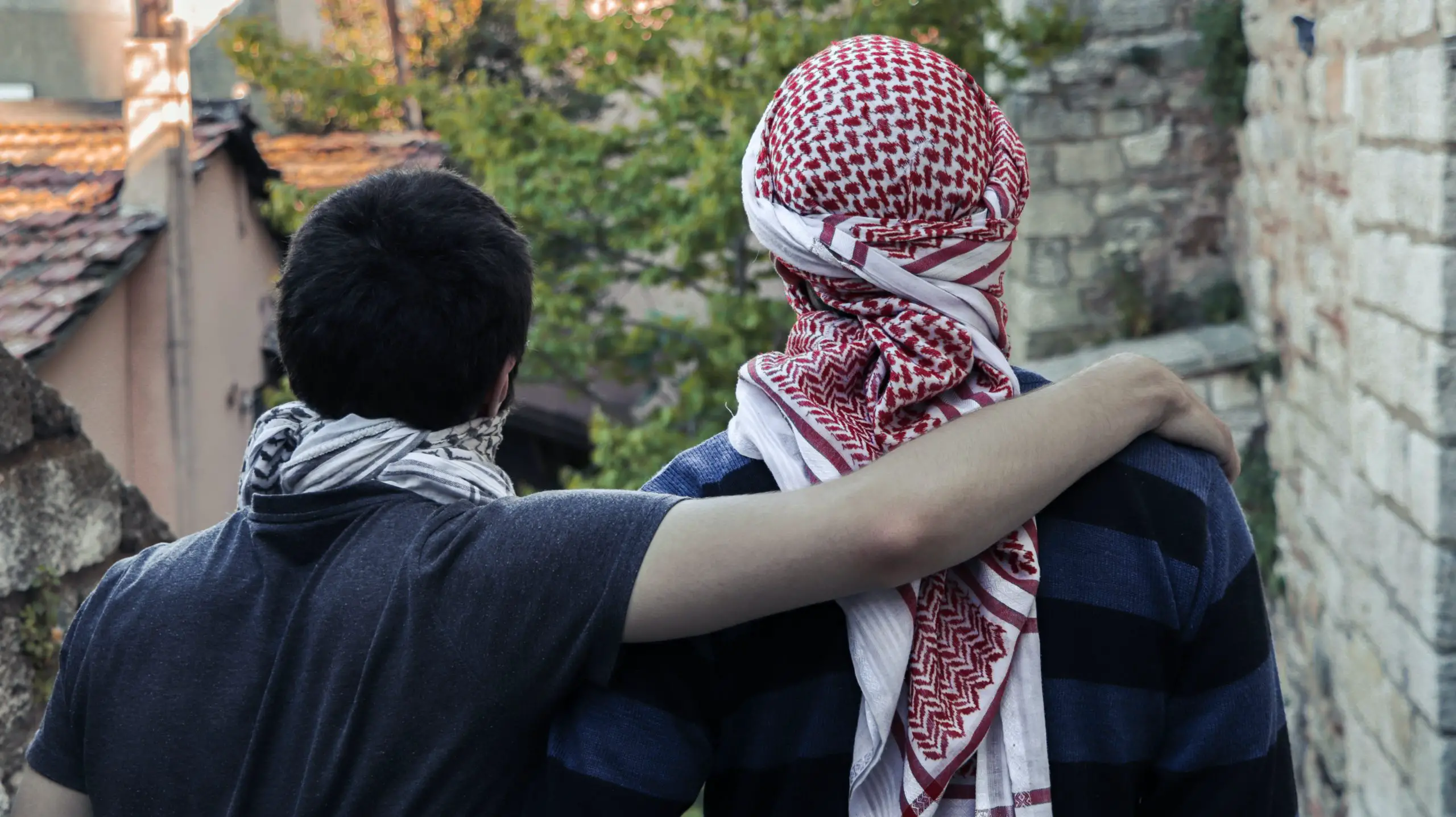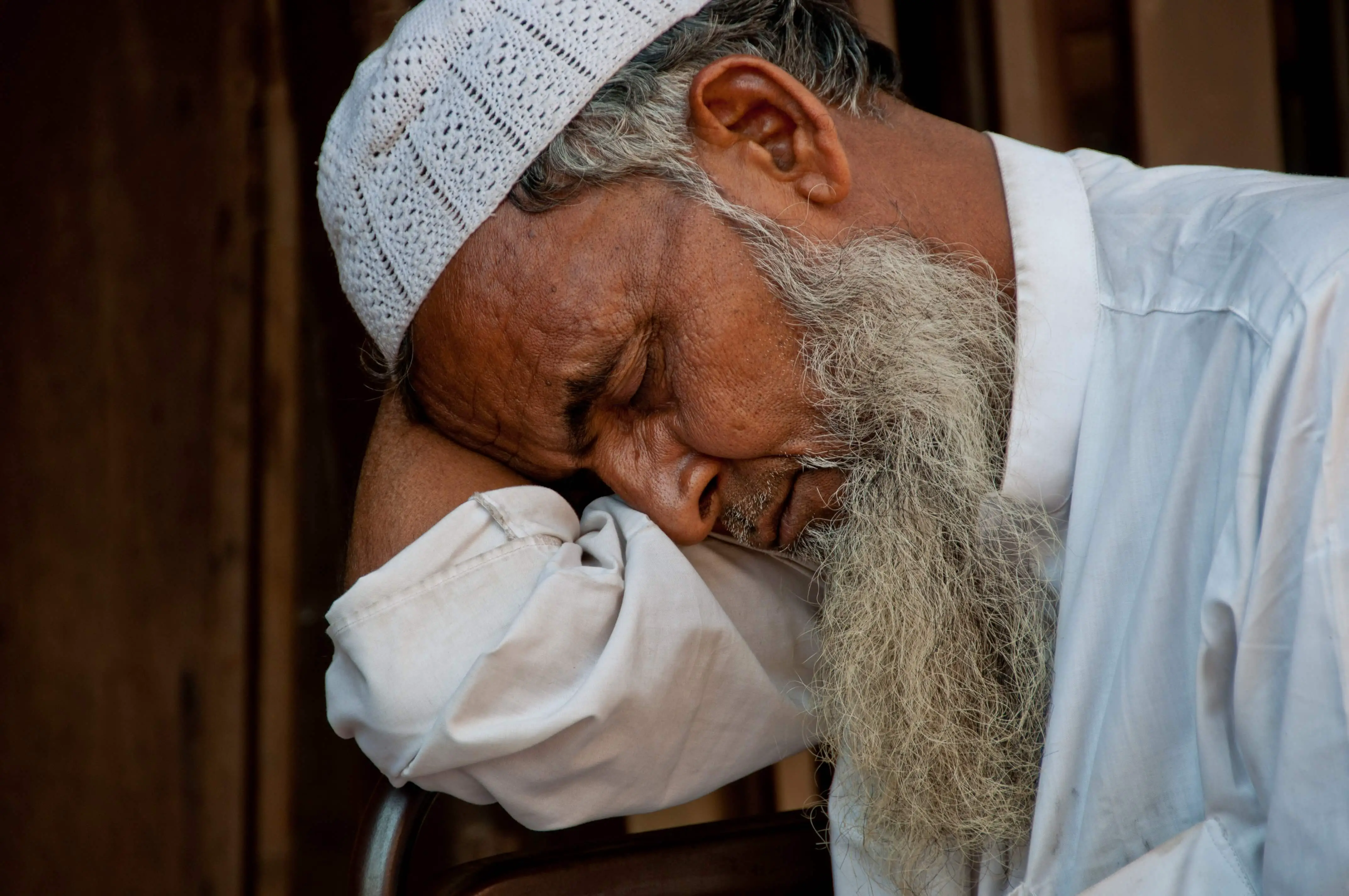How can someone extend condolences and comfort to the family of the deceased? What should you say (not say)?
There are many things you can do that can help a grieving family, and in many cases, it will differ based on the circumstances and cultural norms. However, here are some beneficial practices encouraged:
- Make dua for the deceased
- Give in charity on behalf of the deceased (see sadaqah jariyah)
- Visit the family
If you are able to visit the family of the deceased, during the visit, you should:
- Only speak good words about the deceased (and refrain from anything negative)
- Have a respective demeanor (e.g., avoid loud, attention-seeking talk/jokes)
- Ask forgiveness from Allah for the deceased
In fact, Umm Salama reported Allah’s Messenger (ﷺ) as saying:
Whenever you visit the sick or the dead, supplicate for good because angels say” Amen” to whatever you say. She added: When Abu Salama died, I went to the Messenger of Allah (ﷺ) and said: Messenger of Allah, Abu Salama has died. He told me to recite:” O Allah! Forgive me and him (Abu Salama) and give me a better substitute than he.” So I said (this), and Allah gave me in exchange Muhammad, who is better for me than him (Abu Salama).
It is important to respect the memory of the deceased, the privacy of the family, and the grief of the family members. Be mindful of your words and gentle in your actions around the grieving parties.
What should one avoid when extending condolences or visiting the family?
You should avoid:
- Asking personal details about the deceased (e.g., how they passed away, etc.)
- Prying into the personal details of the family (e.g., next steps, the will, etc.)
- Speaking ill of the deceased; this is not the time to air grievances
- Making the visit about you; focus on paying respect to the family
- Impose on the family by staying for an extended time and/or having expectations of food/drinks
When should someone visit a grieving family?
This will often be dictated by the family, as they may have designated times/places where people can come to extend condolences. In general, visiting someone sooner (i.e., within three days), is better than later, but always defer to the family. If you have a closer relationship with the family, it will often be easier and feel more natural to spend more time with the family, help facilitate other guests that wish to extend their condolences, and provide any support in maintaining the home/immediate needs (e.g., food).
Should you send food to the family of the deceased?
The goal is to help with any basic needs that someone while grieving may not have the capacity/will to do. Cooking and cleaning a home is often on that list, so in a couple of days following the burial, bringing food and helping with any basic needs/errands is commendable. It was narrated that Abdullah bin Ja’far said:
“When the news of the death of Ja’far came, the Prophet said: ‘Prepare some food for the family of Ja’far, for indeed something has happened to them that will keep them busy.'”
Islamically, there is no basis for sending food that exceeds what can be eaten in one day and one night. When sending or bringing food to the grieving family, it is important to not send so much that it overwhelms the family. For example, a family of 4 doesn’t need 5 party trays of food. In fact, many times the families of the grieving party are so inundated with food, they have to throw away the food because they don’t have the space to put it anywhere.
Before sending food, the proper etiquette is to ask the family for permission (and/or coordinate with your community) before sending food to the home. This prevents the family from being overwhelmed with multiple people sending food for one day and one night. If the family refuses food, the person making the offer should not be offended by it and make the situation about themselves. Each family is in a different place while grieving and that should be respected.
Setting up things like meal trains helps the community better communicate about who is sending what to the family in order to avoid these types of situations. It is also good practice to ask about any dietary restrictions the grieving family might have before sending food.
Can a visitor say a person is going to Heaven or Hell?
Only God can pass judgment on whether or not a person is going to Heaven or Hell.
It is the hope that people go to Heaven; however, it is our place to definitively say where someone is destined to go. Only Allah knows what was in the heart of the deceased. Even if a person seemed evil, only God knows if that person repented. Therefore, for a person who seemed good, a person should say “Inshallah,” God-willing, the person went to Jannah. And for someone who seemed outwardly bad or evil, it is best to refrain from saying anything and simply ask for God’s mercy and forgiveness.
What is the best medium and/or location to extend your sympathies?
The best medium to extend sympathies depends on the relationship a person had with the deceased or the person grieving. For example, if a person knew the deceased or the family of the deceased, then personally reaching out to the grieving party is recommended. Whether it is over text or a phone call, depends on how the grieving party prefers to communicate. In the early days of grief, sometimes a text is the most appropriate way to reach out to the person because this allows the person to grieve and not be inundated with calls.
If a person doesn’t really have a close relationship with the grieving parties, then it is okay to send a private text, or group message if the news was posted on a group or even social media post.
How to craft a message of condolence?
Start the message with “Inna lillahi wa inna ilayhi raajioon”.
Umm Salamah (May Allah be pleased with her) reported:
I heard the Messenger of Allah (ﷺ) saying, “When a person suffers from a calamity and utters: ‘Inna lillahi wa inna ilaihi raji’un. Allahumma ujurni fi musibati, wakhluf li khairan minha (We belong to Allah and to Him we shall return. O Allah! Compensate me in my affliction, recompense my loss and give me something better in exchange for it), then Allah surely compensates him with reward and better substitute.” Umm Salamah (May Allah be pleased with her) said: When Abu Salamah (May Allah be pleased with him) died, I repeated the same supplication as the Messenger of Allah (ﷺ) had commanded me (to do). So Allah bestowed upon me a better substitute than him (I was married to Muhammad, the Messenger of Allah (ﷺ)).
Then, make dua for the deceased and family.
Sample message:
Inna lillahi wa inna ilaihi rajiun. May Allah grant her Jannnatul Firdous and cover her with His mercy. May Allah grant her family patience.
The writer can add more duas for the deceased and the family in the message.
- Sunnah.com, Sahih Muslim, Hadith 919
- A Practical Guide to Funeral Rites in Islam by Maulana Ebrahim Noor, pg. 42-43
- Sunnah.com, Jami` at-Tirmidhi, Hadith 998
- A Practical Guide to Funeral Rites in Islam by Maulana Ebrahim Noor, pg. 44
- IslamQ&A “Saying that specific people are going to Paradise or Hell”
- Sunnah.com, Riyad as-Salihin, Hadith 921
- Highest level of Jannah




